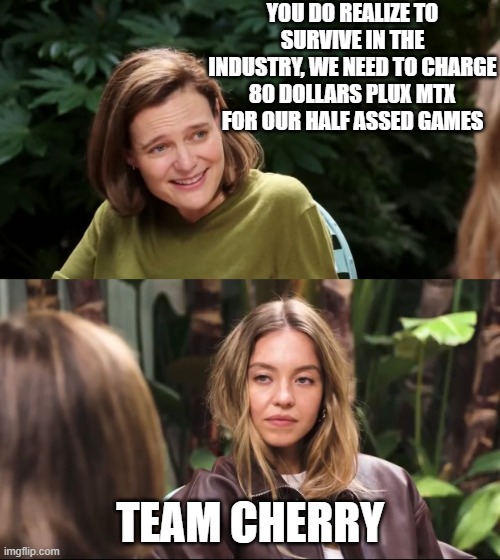LectureMaster
Or is it just one of Adam's balls in my throat?
When your first game sells over 15 million copies, especially if you're an extremely small development team, you don't have to worry about your second game putting food on the table. This was the fortunate position that developer Team Cherry found itself in with Hollow Knight: Silksong after the success of Hollow Knight, so in a way, it was no surprise to see Silksong launch at just $20 – only $5 more than its predecessor – despite being a much larger game that took over six years to make.
Silksong's low price, while not an unbelievable outlier, is very much an outlier. Many devs remarked on Team Cherry "being cool and giving their game away" because it can afford to, even if this kind of price-to-production ratio wouldn't be feasible for many indie teams. Heck, I spent more money on shorter Metroidvania games this year and I didn't regret it at all. Even Hollow Knight, and even at the time, felt undervalued at $15, as if Team Cherry didn't fully know what it had on its hands. Of course, you won't hear me complaining about great, affordable games, and just because you could charge more doesn't mean you have to.
On the topic of price, Team Cherry co-lead Ari Gibson says they just try to pick a fair one. That's coming from interview comments in a paperback guide book from the ACMI (the Australian Centre for the Moving Image), which was recently released following an exhibition featuring Silksong.
Gibson revisits the design decisions that eventually led the studio to turn Silksong into a full game, not the Hollow Knight DLC it was first thought to be. It kept getting bigger until eventually new protagonist Hornet needed a whole new world of her own.
As part of that process, Gibson says, "because we try to price the games at a reasonable level for people – and we have quite a habit of expanding the content to be quite large – it felt inevitable that it would get to a point where the value of what we make would warrant being recognised as a single title."
It is funny to hear Gibson recognize the studio's modus operandi of, not necessarily over-scoping or biting off more than it can chew, but almost unwittingly making projects larger and larger until, suddenly, years have gone by, and your fans have formed a cult. It's also amusing to imagine Team Cherry staff staring down the same $20 price tag that, across the internet, inspired responses both incredulous and reverent, and casually saying, "Yeah, $5 more, that sounds about right."

